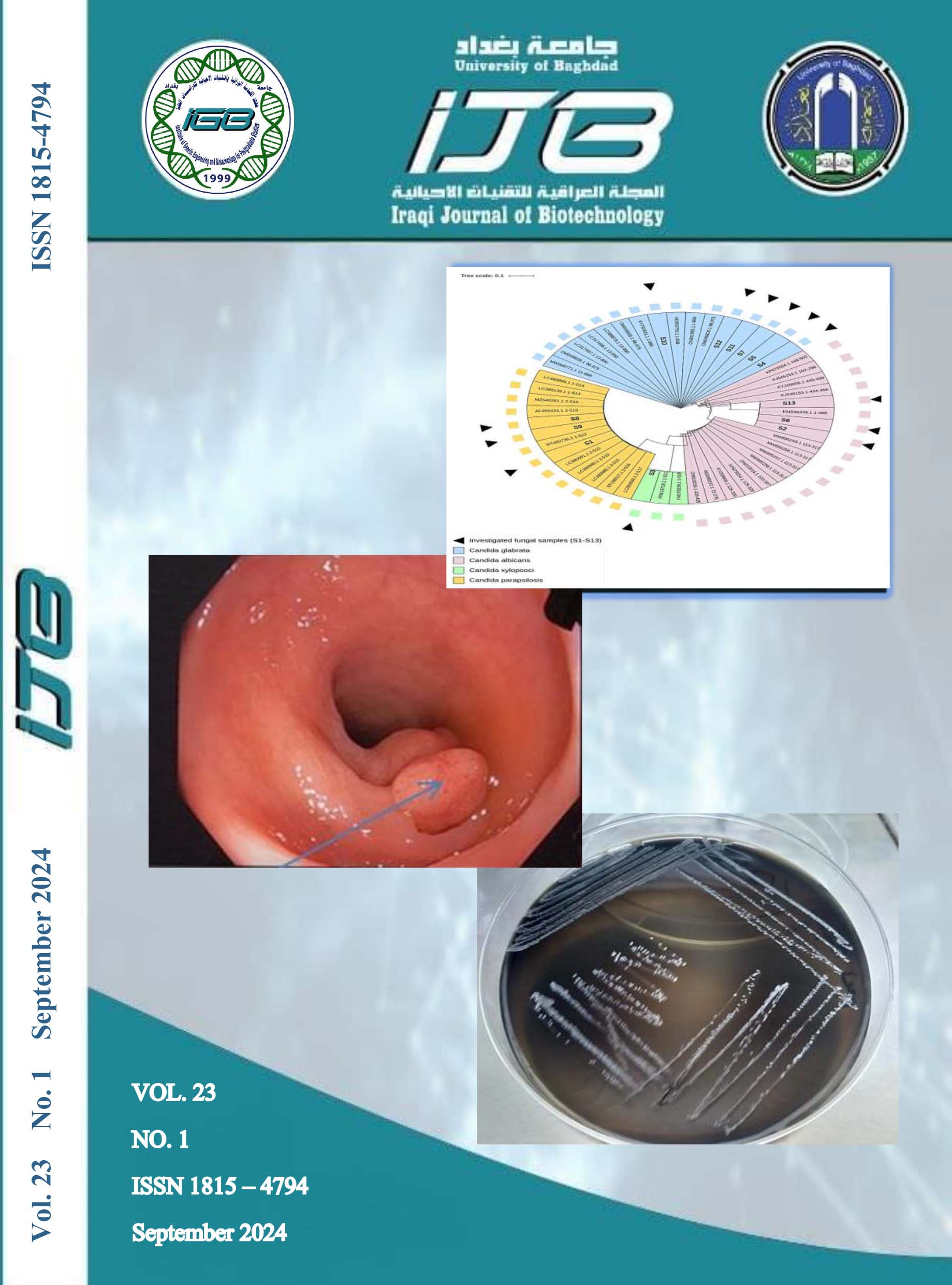Using of mecA Gene as Genetic Marker for Staphylococcus aureus Detection Isolated from Atopic Dermatitis Patients
Abstract
Atopic dermatitis (AD), also identified as atopic eczema, is a long-term type of inflammation of the skin (dermatitis). The symptoms is red, swollen, itchy, and cracked skin, environmental factors such as emotions, sweating and exercise in addition to microbiological factors such as Staphylococcus aureus skin colonization which usually wide spread in these patients play an important role in the disease. The aim of the study: The present study was aimed to find the probable microorganism reasons that cause Atopic dermatitis (AD) in Iraqi individuals. During the period of study from beginning December 2022 to March 2023, A total of eighty swab specimens were collected from atopic dermatitis patients attending Medicine City/Baghdad Teaching Hospital and private laboratory. The culture results revealed 20 isolates to the S. aureus bacteria depend on culture characteristic, While the conformation by Vitek2 system showed that 20 isolates belonged to the genus S. aureus. It was concluded Staphylococcus aureus is frequently detected in patients with AD, and mecA gene appeared to be useful genetic marker for determination of S. aureus and PCR using species-specific primers could be represented rapid, sensitive and specific molecular method for detection of this bacteria in different AD patient.


